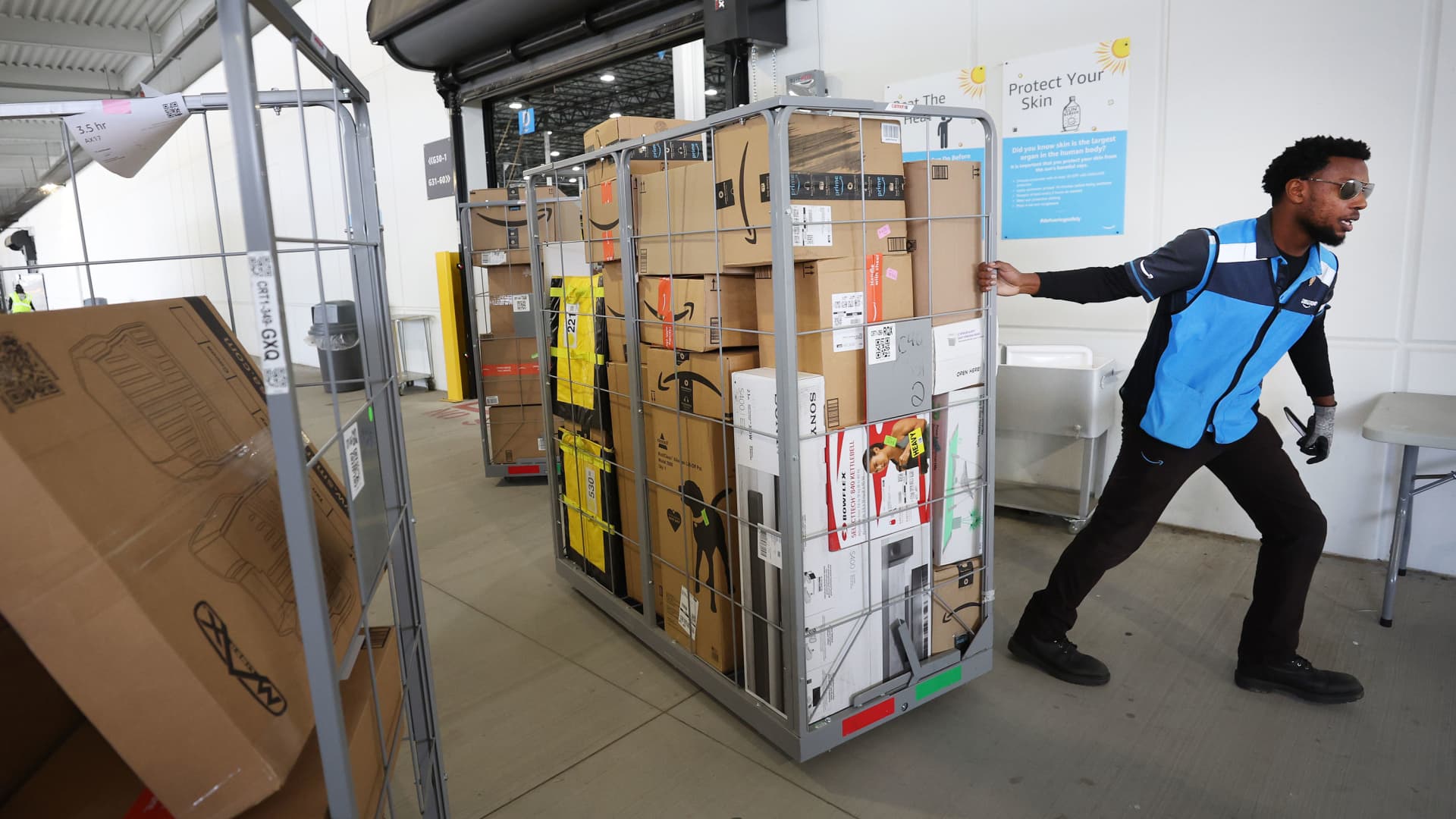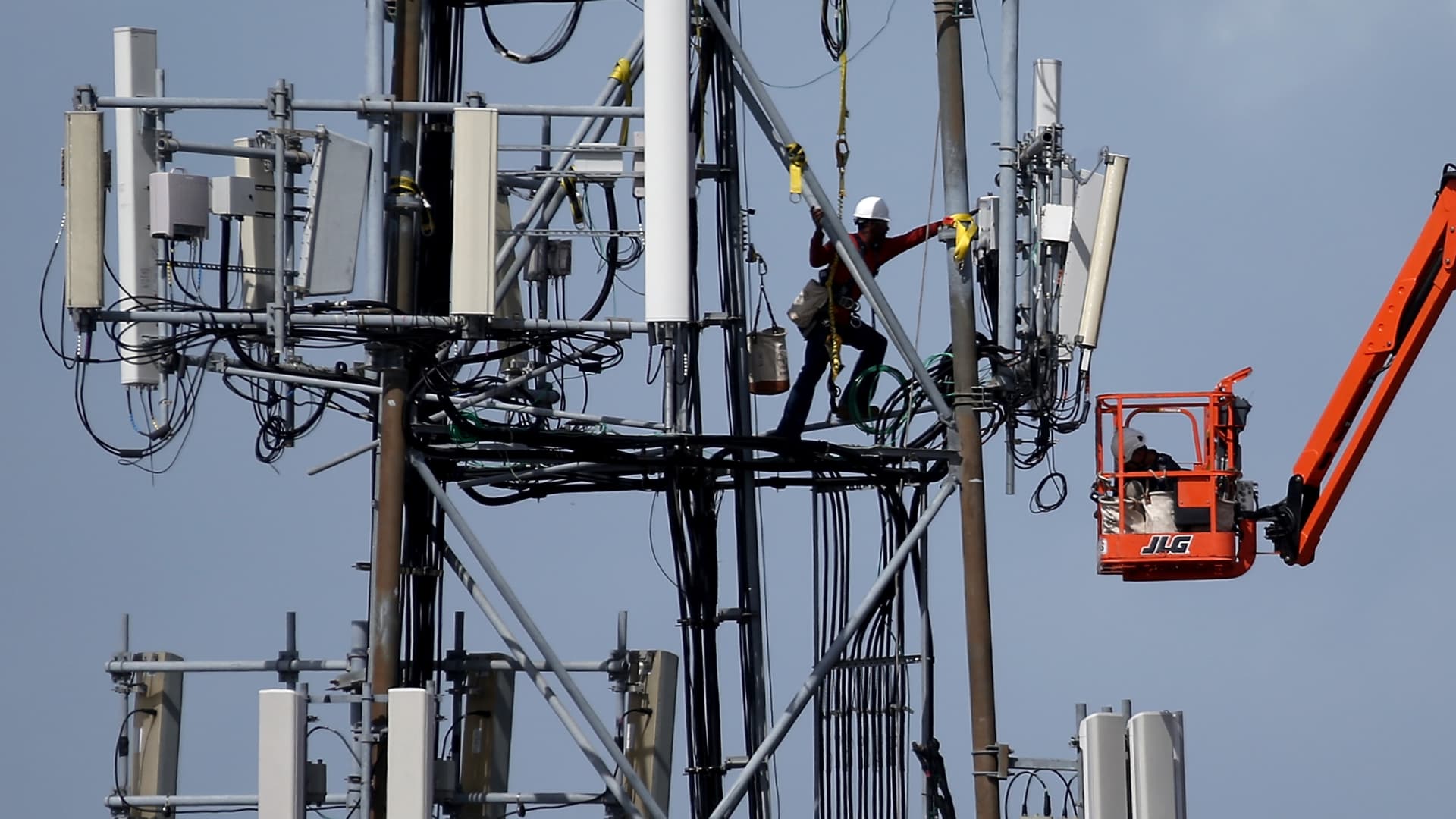
An Amazon driver loads packages into a delivery van at an Amazon delivery station on November 28, 2022 in Alpharetta, Georgia.
Justin Sullivan | Getty Images
Amazon has for years been marching toward making same-day and next-day delivery the standard for members of its Prime loyalty club.
On Monday, the company said it reached a major milestone in those efforts. Amazon said so far this year it’s delivered 1.8 billion units to U.S. Prime members the same or next day, roughly four times what it delivered at those speeds by this point in 2019.
For the past four years, Amazon has poured money and resources into revamping its warehouse and delivery network to shorten shipping times from two days to one day or less. Those efforts hit a snag during the Covid pandemic due to supply chain and labor-market challenges, but normal delivery speeds have largely returned as a result of new warehouses coming online and other improvements to the company’s operations.
Amazon says it achieved its “fastest Prime speeds ever” last quarter.
One of the company’s biggest changes in the past year is a shift away from a national “hub and spoke” fulfillment network, where packages might travel through several facilities across the country, said Udit Madan, Amazon’s vice president of transportation, in an interview. The company moved to a model in which the country is divided into eight smaller regions, with local facilities that stock commonly ordered items.
Fast delivery is notoriously expensive and logistically challenging, and companies typically lose money on deliveries. But Amazon’s change cut costs and boosted delivery speeds, Madan said.
“Our fastest speeds tend to be our most economical,” he said.
Driving fewer miles and requiring fewer handoffs has reduced Amazon’s “cost to serve,” Madan added. Amazon says it’s cut the distance items are traveling from warehouses to customers by 15%, and lowered the number of “touchpoints,” or how many times a package is handled, by 12%.
The company has also seen improvements in its machine-learning technology that allows it to better plan where and how much inventory is placed in warehouses, hastening delivery times. Across the top 60 U.S. metro areas, Amazon says more than half of Prime orders arrived the same or next day.
Speedier delivery has pushed shoppers to purchase more items from Amazon than they might normally buy from their local corner store, or big-box retailers like Best Buy.
“We’ve consistently seen that as we’re offering faster speeds, we’re actually expanding the consideration set that customers think of us for when they’re thinking about their purchases,” Madan said. “What we’re seeing is greater engagement and more purchases from customers.”
Amazon is rolling out more so-called “same-day sites,” or smaller buildings located closer to large metro areas where the company fulfills, sorts and delivers products from a single location. It has traditionally operated distinct facilities for these purposes, meaning separate fulfillment centers, sort centers and delivery stations.
Same-day sites are stocked with a rotating selection of millions of items tailored to what customers are purchasing in the area, whereas a typical warehouse is much larger and may have a more random assortment of products.
Amazon plans to double the number of same-day sites in its network over the next two years, Madan said.
The company declined to share how many same-day sites it maintains. The Wall Street Journal reported Amazon has opened approximately 45 facilities since 2019, citing data from MWPVL International, a supply chain and logistics consulting firm that closely tracks Amazon’s distribution network.
WATCH: Amazon’s global head of sports says, ‘We’re playing the long game’







